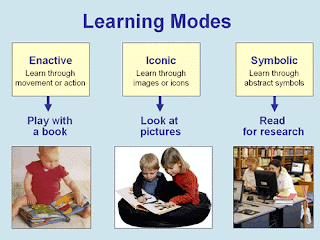Metacognition and Embodied Learning

Metacognition Metacognition , a term that was first defined by John H. Flavell in 1979, is basically thinking about thinking. With metacognition, we become aware of our own learning experiences and the activities we involve ourselves in our paths toward personal and professional growth. We are better able to understand ourselves in the whole process of learning and can develop skills to think about, connect with, and evaluate our learning and interactions each day. According to Flavell, metacognitive knowledge is “knowledge about one’s own cognitive processes or products. Metacognition has been identified as an essential skill for learner success. It allows students to drive their learning, build student agency, and foster a growth mindset in learning. In order to develop metacognitive skills and habits in the classroom • First, students must have the opportunity to practi...



